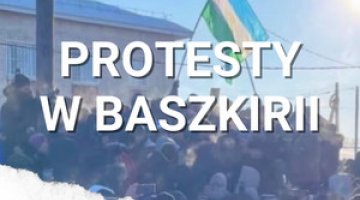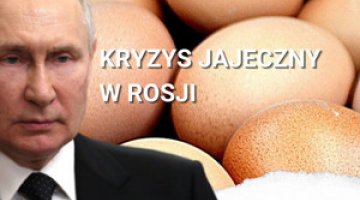Restrictions versus protests: the government hinders opposition activity
In recent weeks, the State Duma has passed a number of laws intended to serve as instruments for increasing state control over public activity, and which could be used to counteract opposition initiatives. Among other things, the requirements for NGOs using foreign grants have been raised, and they have been given the status of ‘foreign agents’; the criminalising of ‘defamation’ has been restored; the ability to block websites which contain inappropriate content has been introduced. Moreover in June this year, the penalties for engaging in illegal protests were increased.Opposition leaders are still being harassed. Simultaneously, the government is planning to increase spending on the institutions of force responsible for maintaining public order.
The wide range and restrictive nature of the latest actions aimed at the Kremlin’s opponents confirm that its political strategy has come down to a desire to block the social changes taking place, including preventing opposition activity by rising its costs– both financially and politically. However, this also shows the Kremlin’s growing nervousness, which results both from the continuing social mobilisation and pessimistic economic forecasts, including the likelihood of another wave of the economic crisis, which could undermine Russia’s economic stability. However, the effectiveness of the strategy which the government has adopted may be limited: it may only hinder the activity of the opposition and critics of the government in the short term. Nor does this strategy remove the deeper causes of dissatisfaction with the Kremlin’s policies. Moreover, an increasingly repressive policy may alienate the parts of society which traditionally have been favourably or at least neutrally oriented towards the government.
Restrictions introduced in record time
In July, the State Duma adopted in record time a number of laws that regulate various aspects of civic activity, and which can be used by the government against individuals and organisations involved in political activities (see the Appendix for specific details on these laws). The amendment of the law on NGOs gives those which benefit from foreign funding the deliberately ambiguous-sounding status of ‘foreign agents’. The new rules tighten government control over the NGO activities, and introduce criminal penalties for various offences. This will hinder the functioning of NGOs, and could be used to discredit them as entities acting in the interests of foreign states. The amendment to the law on child protection gives the government the ability to block websites where child pornography, information about drugs or pro-suicide propaganda are shown. This amendment may be used to put pressure on the ‘disobedient’ media and bloggers, as web administrators have limited control over user-created content. Another law passed by the Duma has restored the criminalisation of ‘defamation’ (the legal definition of which includes criticism of the government), for which huge fines (of up to 5 million roubles, over US$150,000) or compulsory community service can be imposed. This could lead to the bankruptcy of both organisations and individuals who are critical of the government. In addition, amendments to the law have been approved which completely prohibit the advertising of alcohol (defined as beverages containing more than 5% ethanol) on television, the Internet and newspapers. These provisions may strike at part of the media which has criticised the Kremlin, for which advertising revenues are an important source of funding that helps them to maintain their independence.
More legislative initiatives of the same nature have been announced for the autumn session of parliament. Although United Russia’s deputies withdrew a bill which would have conferred the status of ‘foreign agents’ on media principally financed from abroad, the government nevertheless intends to ‘coordinate’ the activities of volunteers more closely. The Public Chamber (largely controlled by the Kremlin) has prepared a draft law under which volunteers may only work on behalf of a registered organisation (and must sign a cooperation agreement with it), and their activities must be planned and accounted for in detail (for example, they will take responsibility for any failure to comply with the commitments as declared).
This legislative activity is being accompanied by many other government initiatives against the opposition. The court is hearing a case concerning an alleged call to riot during a rally on 6 May: some opposition activists are being interrogated, their homes were searched, information about their personal lives is being disclosed, and so on. One of the defendants may appear to be the charismatic blogger Aleksei Navalny; as those who have been interrogated claim that attempts are being made to force them to provide testimony which would incriminate him. In turn, the federal service Rosfinmonitoring, which is subordinate to the president, has initiated a money-laundering investigation into the funding Navalny has received for programmes to fight corruption. Other Duma deputies who have been involved in protest activities have also been harassed, including Gennady Gudkov of A Just Russia party (the police withdrew the licenses for two security companies which he runs) and the Communist Vladimir Bessonov, who was stripped of his immunity by the Duma. He was indicted for allegedly initiating a riot during an opposition rally in Rostov-on-Don in December 2011.
The government is getting more nervous
There is no doubt that the Duma’s legislative offensive against and persecution of the opposition are being controlled by the Kremlin. The legislative initiative behind these laws was taken by deputies from United Russia, the party of power. President Vladimir Putin publicly endorsed the adoption of the new laws, while also warning that “destructive” forces should not be allowed to destabilise the situation in the country.
The restrictive nature of the changes adopted reflect the government’s political strategy, which is aimed at strengthening the state’s control over public life and counteracting the ongoing process of social mobilisation currently seen in Russia, both in the political sphere (the increased activity of the opposition) and other areas (bottom-up initiatives in the fields of ecology, philanthropy, local issues, et al.). The new restrictions are intended to inhibit civic activity and increase its costs – financial, political and personal. The new legislation expands the range of options for punishing opponents, including bankrupting them for simply criticising the government. At the same time, the government is strengthening the potential and loyalty of the institutions of force, which could be used against any opposition action on the street: in the draft proposals for the 2013 budget prepared by the Ministry of Finance, expenditure on maintaining public order is to be increased by 9% (and by up to 25% on national defence), in contrast to the reduction in social spending.
At the same time, the broad and restrictive nature of the changes reveals the Kremlin’s increasing nervousness and anxiety at a possible further mobilisation of the general public. This indicates that the government is beginning to take both its opponents and the scale of their threat to the current system more seriously. The root of these concerns is that the social mobilisation of groups opposed to the government has been maintained since last autumn. And although its level has dropped off slightly during the summer, it is still fuelled by controversial government actions, or by events revealing the inefficient functioning of the state. The last such event was the flooding in the Kuban, during which many years of neglect at the regional and federal levels came to light. Reactions to the flooding showed that the public held the government (including the Kremlin) responsible for the inefficient functioning of the state. It also demonstrates great organisational efficiency and the capacity for rapid, bottom-up activities (organising aid for the flood victims). This activity even caused President Putin, afraid that the government’s handling of the flooding would receive even more criticism, to pay a second visit to the disaster areas, and announce even higher compensation for the flood victims.
The government’s disquiet is also fuelled by repeated forecasts of another wave of the economic crisis in 2013, caused by problems in the eurozone, among other matters. An economic slowdown which affects Europe and South-East Asia could reduce the demand for Russian energy carriers and reduce their prices. It would seriously strike at the Russian budget and impede the government’s attempts to achieve its economic, political and social aims.
The (in)effectiveness of a restrictive strategy
The strategy chosen by the Russian government may be effective in the short term: high fines and the criminalisation of many opposition activities may hamper and restrict their activity. However, the opposition’s reactions show that they are already looking for the ways to circumvent the new rules. We can therefore assume that the restrictions will not stifle the criticism of Putin's policies in the long term. The source of this criticism is dissatisfaction with the current model of governance and increased interest in liberalising the system of power, expressed more or less directly by the middle class, some of the economic elite, the intellectual class, and even within the part of the public administration.
What is more, the degree of restrictiveness of many of the Kremlin's recent moves may alienate those social circles who have hitherto been favourably or at least neutrally disposed towards the government. The new laws may in fact strike at the activity of NGOs and media which have not been involved in political activities. Concern over the stringency of the laws adopted so far has been expressed by some observers who have not been politically engaged so far. The Kremlin’s restrictive policy is also reflected in changes noted by sociological research in public sentiment against the government. These show an increase in public acceptance of political protest: 40% recognise the right of the ‘discontented’ to protest (although just as many are opposed), and 45% are opposed to punishing the opposition (whereas 30% are in favour). A negative public attitude is also apparent regarding the various types of natural disasters such as the recent flood in Kuban: most people believe that they are being deceived by the government. If Russia suffers the effects of a second wave of the economic crisis over the coming years, we may expect social security payments from the state to be reduced. In this situation, the already-existing moods of opposition may be bolstered by the dissatisfaction of other groups who so far have supported the government.
with assistance from Katarzyna Jarzyńska
Appendix
Legislation which the government can use to limit opposition activity
On 9 June, an amendment to the law on assemblies came into force. Penalties for participating in illegal gatherings, and for causing material damage and bodily injury of person during rallies and demonstrations, were raised sharply – they now stand at 300,000 roubles (over US$9000) for individuals, and up to 1 million roubles (over US$30,000) for organisations. Violation of the law can also be punished by community service (up to 200 hours).
On 11 July, an amendment to the Child Protection Act gave the government the ability to block websites on which child pornography, information about drugs or pro-suicide propaganda appear. The decision to include a website on the ‘black list’ can be taken by the Roskomnadzor government service, without the sanction of the court. The act will come into force on 1 November 2012.
On 13 July, the law on NGOs was amended. The law applies to the organisations involved in the political activity (the definition includes organising the political actions designed to influence the decision-making process by the government, or to form public opinion, in that order). NGOs using foreign financing will receive the status of ‘foreign agents’, resulting in tighter supervision of their financial activities (including submitting a financial report every six months). The law also introduces criminal penalties for various offences; for example, a refusing to submit the documents needed to join the list of ‘foreign agents’ can earn fines of up to 300,000 roubles (over US$9000), the suspension of NGO activities for six months, up to 480 hours of forced labour, or up to two years’ imprisonment. In turn, for “inciting citizens to refuse to perform the duties of citizenship or for other unlawful activities”, violators can be fined up to 200,000 roubles (over US$6000), imprisoned for 3 years or given mandatory community service for a period of 3 years. On the initiative of President Putin, religious, cultural and environmental organisations, as well as public corporations, local government institutions and organisations subordinate to them with non-profit status are exempt from this law. The act will come into force in November 2012.
On 13 July, amendments to the Criminal Code were adopted restoring the criminalisation of ‘defamation’. This concept has a broad definition: the deliberate dissemination of false information discrediting another person and damaging his reputation. It provides for high fines (up to 5 million roubles, over US$150,000) or mandatory community service of up to 480 hours. It is worth noting that ‘defamation’ was removed from the criminal code a year ago (June 2011) on the initiative of President Medvedev. This legislation is likely to come into force this autumn (although as yet no exact date has been specified).
On 23 July, amendments came into force to the law on advertising, as well as a range of national laws governing the production and sale of alcohol, which completely prohibit the advertising of alcoholic beverages containing more than 5% ethanol in the media: television, the Internet and newspapers (in relation to the press, the new law will apply as of 1 January 2013).




